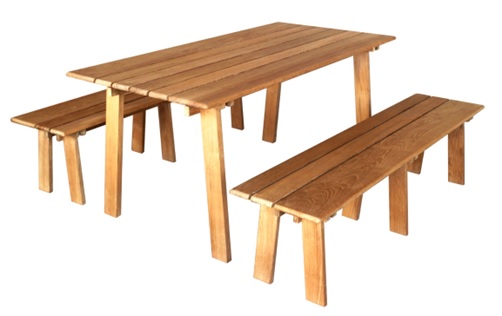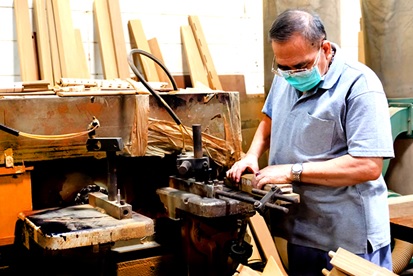A circular economy is an economic model that emphasizes not only economic growth, but also social and environmental development. It involves reusing and recycling materials to maximize the value of limited resources. At the heart of circular economy is the circular design that focuses on finding a way to deliver a product or a service with desired functions and optimum material use while minimizing its negative impact along the whole life cycle.

Picnic table is an example of teak furniture developed with circular design, made by Deesawat, a Thai brand well known for making wooden furniture. Engineering technique was employed to reinforce its strength, whereas harsh chemical was removed from the manufacturing process. Parts and components of the table can be reused or repurposed, thus maximizing resource use.
Mr. Jirachai Tangkijngamwong, Deesawat Managing Director said that participating in the Design for Circular Economy Project has exposed the company to the circular thinking, enabling the company to contribute to the sustainable production and consumption.

Dr. Nudjarin Ramungul, MTEC research specialist, said that the Design for Circular Economy Project aims at educating and facilitating Thai industries to adopt the circular thinking which will in turn enable the country to achieve carbon neutrality and net zero emission goals. The project was funded by the Department of Primary Industries and Mines (DPIM).
Traditionally, wooden furniture made by Deesawat is assembled using mortise-and-tenon joint. However, mortise and tenon structure can be wasteful as wood has to be removed to make mortise and tenon and is not very adaptable. The manufacturing of picnic table adopts modular design, allowing parts to be easily disassembled and reassembled using screws. In addition, components can be reused instead of becoming waste.
Mr. Nattakorn Keeratipaiboon, MTEC engineer, added that the table has been tested to ensure that the new design does not compromise the furniture strength. Computer simulation has been used as a tool to avoid overdesign, thus saving resources and cost. Circular design enables 20% overall cost reduction due to less raw material and energy used and wood loss reduction. As no toxic chemical is used in the manufacturing process, components of picnic table are ready for reusing and recycling without the need of chemical removal.

Circular thinking represents a key strategy for Thailand to achieve carbon neutrality by 2050 and net zero GHG emission by 2065.








